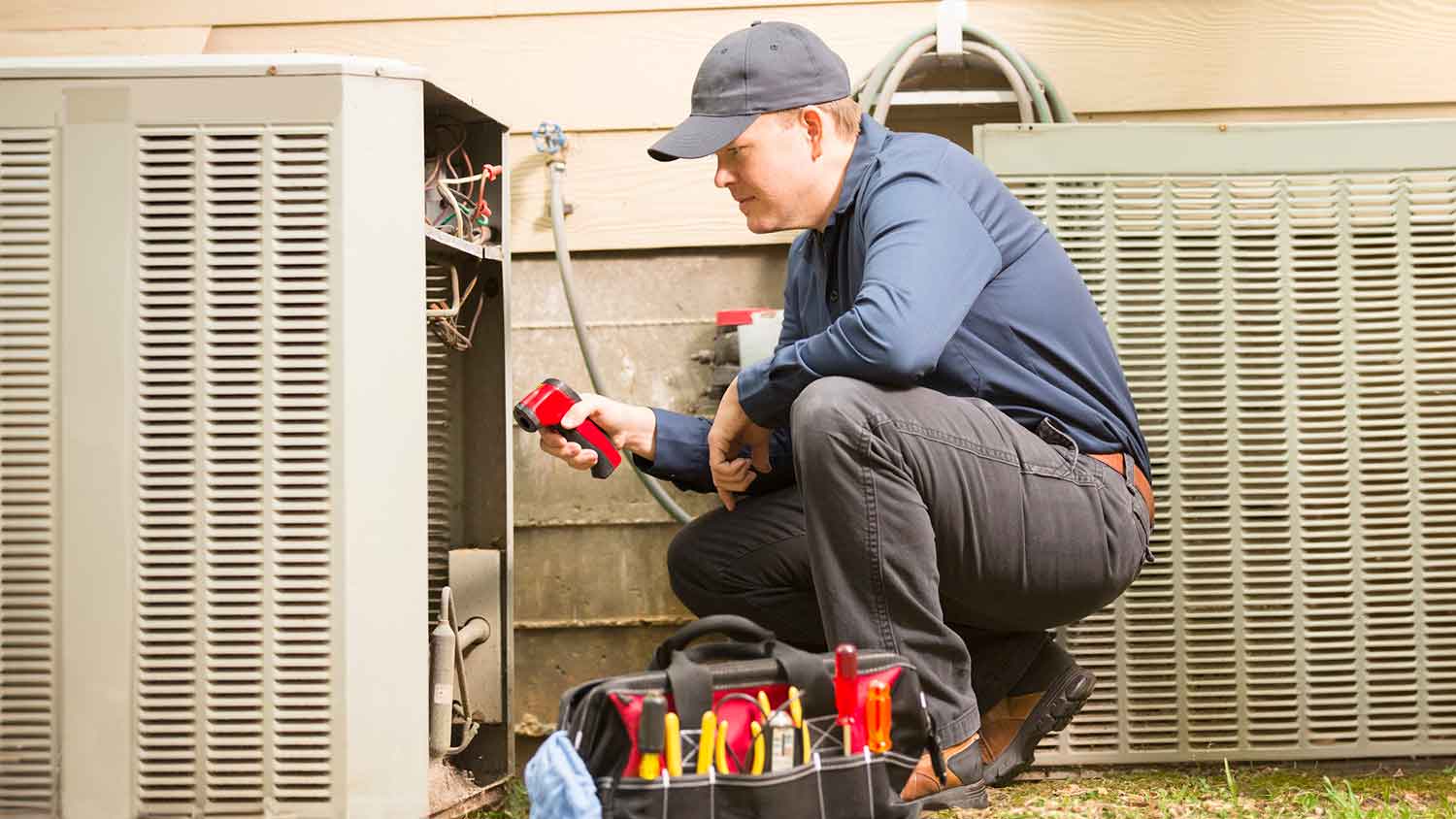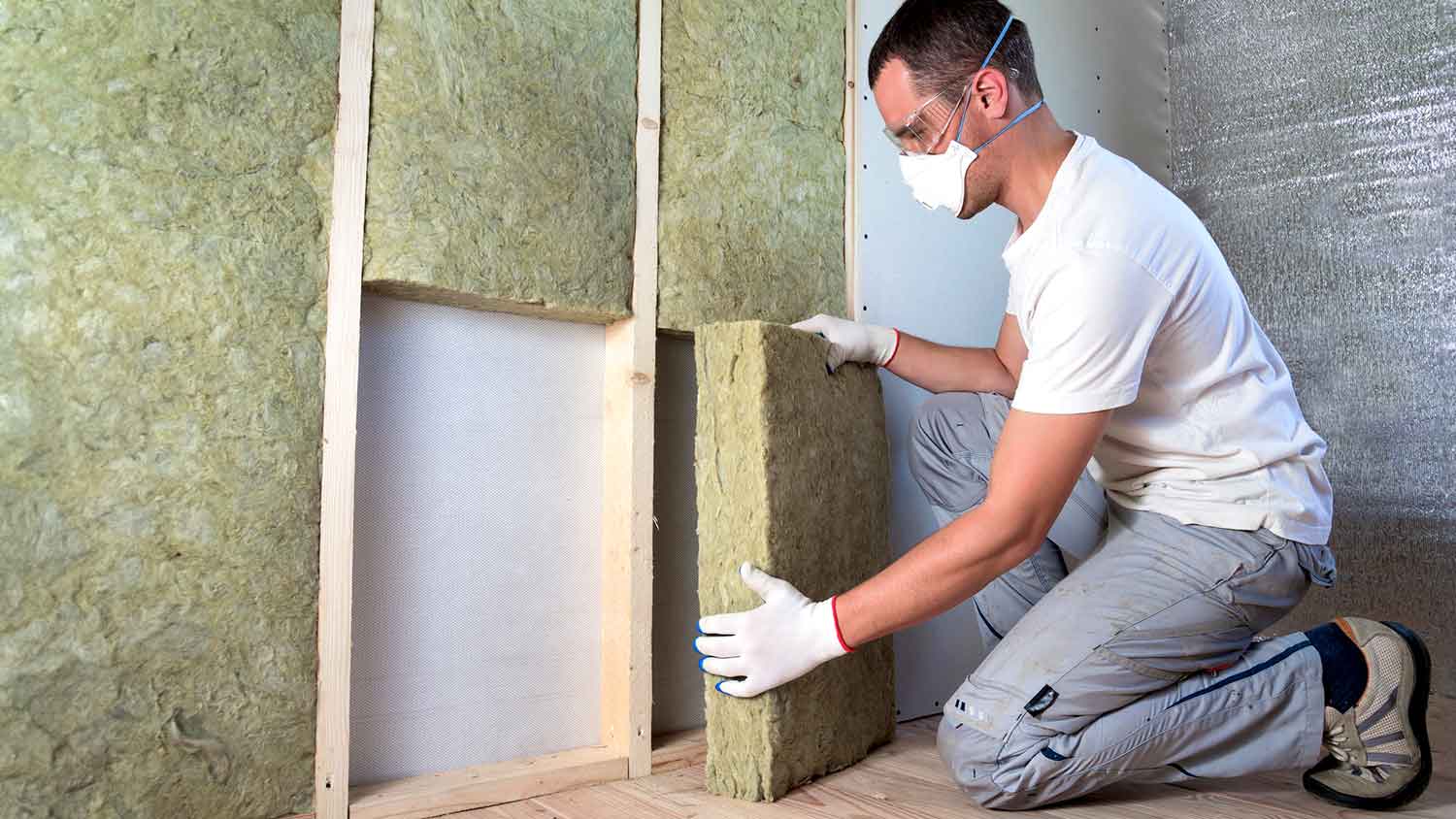
Here's what you can expect when getting an estimate for coolant leak repair costs. The cost can vary based on the detection method used, the source of the leak, and the amount of damage that needs to be repaired in the aftermath.
Prevent your home from becoming a condensation station
HVAC issues are the top causes of a humid house.
A humid climate will increase the humidity inside the house too.
Other culprits include poor ventilation and inadequate insulation.
Your local HVAC repair specialist can help identify the problem.
You should call a remediation pro if you spot mold, mildew, or condensation.
Your home should feel like a welcome retreat, not a tropical jungle. If excess humidity is causing you to sweat, and not just because of the heat, it’s time to figure out what’s causing all that moisture in the house. A number of factors could be at play, from the climate you live in to how well your HVAC is working. Learn how to identify the cause for condensation below.
No matter how insulated your home might be, if you live in an area with high humidity, the moisture is likely to seep in through cracks and crevices in your home. This is especially true for older properties or ones with indoor/outdoor spaces.
Make sure you’re properly closing all windows and doors and that they’re sealed correctly. You can also run a dehumidifier on a regular basis to remove excess moisture from the air, especially if it is in the basement.

Air conditioning units that are oversized or past their prime may have to work twice as hard to deal with humidity in your home. If your AC system is over 15 years old, it may be time to look at replacing it. On the flip side, an air conditioning unit that’s too big for your home can short cycle, shutting off before it's able to deal with humidity effectively.
Contact your local HVAC repair specialist to inspect your HVAC system to determine if it’s sufficient for your space or if it needs to be replaced. In the meantime, have regular maintenance performed on your unit so that it stays in mint condition.
Rooms with high moisture levels—bathrooms, kitchens, and basements—can often lead to high humidity levels if they’re not ventilated well. These types of spaces need venting and exhaust fans in order to remove moisture as a result of showers, baths, cooking, and other activities.
If you don’t have them already, have exhaust fans installed near showers and cooktops to remove the steam that comes from hot showers or boiling water. You may also want to consider having a ventilation system installed if exhaust fans aren’t sufficient.

Your AC is running, doors and windows are properly sealed, and you’re still asking yourself, “Why is my house so humid?” The answer could be inadequate insulation, especially if you live in an older home and haven’t had the original insulation replaced. The damp air outside could be making its way in through gaps in old insulation that’s worn thin over time.
Have old insulation in your attic or basement replaced to help block out unwanted moisture and keep your inside climate at a comfortable level. This is a job for a professional, so call for a consultation first.
In some cases, undetected leaks from a bathroom or kitchen sink can lead to excess moisture in the air. Signs of leaks or cracks in your plumbing include:
Musty odor underneath sinks
Signs of mold growth near plumbing
Wall discoloration
Bubbling paint
Dripping sounds
Regularly check exposed plumbing in sinks and bathrooms for cracks or leaks. Small leaks and cracks can be corrected with repair tape or putty used by plumbers. If the damage is too extensive for a DIY fix, contact your local plumber to inspect the pipes and either repair or replace them.
If you can’t seem to reduce the amount of humidity in your home through trial and error, it may be time to call in the experts. This is especially true if your home is showing signs of mold or mildew growth, or if you detect a musty odor in spaces like basements or bathrooms. Any excess condensation around windows or walls also necessitates a call to your local HVAC repair professional. The expert should be able to come up with a plan to get rid of humidity once and for all.
From average costs to expert advice, get all the answers you need to get your job done.

Here's what you can expect when getting an estimate for coolant leak repair costs. The cost can vary based on the detection method used, the source of the leak, and the amount of damage that needs to be repaired in the aftermath.

What you’ll pay in Columbus, OH, for furnace repairs depends on many factors. Here’s a breakdown of what can go wrong and the cost to fix those issues.

Gas furnace replacement costs depend on the type of furnace you want and installation fees. Our guide explains all the factors involved in a new furnace cost.

Tackling unwanted odors from indoor plants can be tricky. Learn how to use a carbon filter in your duct fan to improve air quality.

Learn how to add Freon to your AC unit with our step-by-step guide, and keep your home cool with a properly functioning AC unit.

Not sure which kind of thermostat is best for your home? Here’s an overview of three types of thermostats so that you can choose the right one for you.